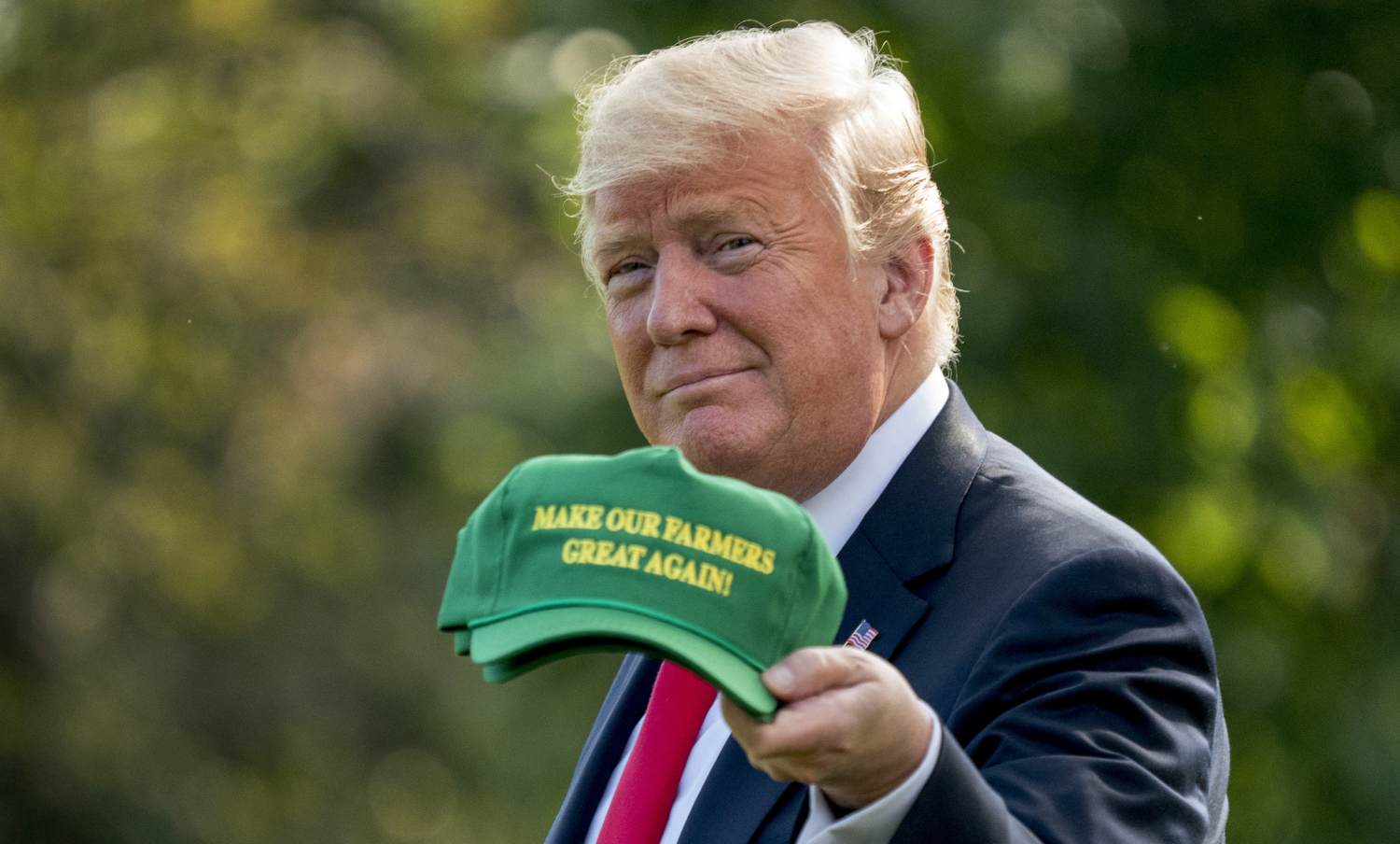We spend a lot of time focused on the 2020 Democratic presidential primary mainly because that’s where most of the political action is right now. However, Donald Trump, the incumbent President running for reelection, currently sits in the Oval Office and occasionally makes waves into the 2020 campaign directly.
Sometimes the wave is more of an undercurrent, as appears to be the case for midwest farmers struggling under the current round of trade negotiations between the United States and China. With Iowa in the forefront for Democrats, still holding the first-in-the-nation caucus status, farming and agriculture are big issues for candidates to focus on.
A recent CNBC article, covering the business end of the political fallout from Trump’s tariffs on China, quoted one farmer, saying, “Trump is ruining our markets”:
U.S. farmers lost one of their biggest customers after China officially cancelled all purchases of U.S. agricultural products, a retaliatory move following President Donald Trump’s pledge to slap 10% tariffs on $300 billion of Chinese imports.
China’s exit piles on to a devastating year for farmers, who have struggled through record flooding and an extreme heat wave that destroyed crop yields, and trade war escalations that have lowered prices and profits this year.
“It’s really, really getting bad out here,” said Bob Kuylen, who’s farmed for 35 years in North Dakota.
“Trump is ruining our markets. No one is buying our product no more, and we have no markets no more.”
Agriculture exports to China dropped by more than half last year. In 2017, China imported $19.5 billion in agricultural goods, making it the second-largest buyer overall for American farmers. In 2018, that dropped to $9.2 billion as the trade war escalated, according to the United States Department of Agriculture.
If you ask the White House, they’ll say the pain is a temporary but necessary step to rein in the massive trade imbalance with China. However, the real pain being felt on the ground in states where Trump won in 2016 and needs to hold in 2020 are viewed as serious potential openings by some Democratic strategists if the trend continues into next year:
Iowa Democratic Party official Troy Price on Monday said that President Trump’s ongoing trade war with China is among the top concerns among voters in the Hawkeye State, saying the battle is starting to hurt local farmers.
“What I’m hearing a lot about is the tariffs and I do think the tariffs are starting to really hurt the president’s standing in the state and hurt the Republican Party’s standing in the state,” Price, a chairman of the Iowa Democratic Party, said in an appearance on Hill.TV’s “Rising.”
“I’ve been out and about a lot throughout the state — I think I’ve put a 100,000 miles on my car over the last two years since I’ve had this job — and everywhere I go, more and more people are talking about it,” he added.
Price maintained that the tariffs are a growing issue for voters across partisan lines, saying many in the state feel like Trump has failed to keep his campaign promise to stand up for the agriculture industry.
Conventional wisdom right now says that Trump’s strong economic numbers are the fundamental basis for his advantage in his reelection campaign. However, some economic indicators are starting to turn south, and this particular area being dragged down by tariffs could undercut much of the President’s argument to voters. That linked story mentions the presidencies of Jimmy Carter and George H. W. Bush, two men from opposing parties in different election years who were ultimately brought down by a weak economy. However, Trump’s economic numbers still have a long way to go before they would be close to recession territory.
Trump easily won Iowa in 2016, and many surrounding midwestern states of similar economic and agricultural makeup. If the tariff war with China continues to hurt this region of the country more than others, it could create a seismic shift in the attitude of voters even if they originally voted for him 2016 or would be naturally inclined to vote for him again in 2020.
It’s a message that many Democratic candidates have been pushing during their time in Iowa for the past several days. Sen. Elizabeth Warren went directly at the President and took her case to Iowa voters that the current trade war is another form of class warfare with larger agriculture companies, “big ag,” as she calls them, seeing the benefit while small farms buckle under the pressure:
“Trade war by tweet is not working for our farmers,” she said of Trump’s using Twitter to announce tariffs on China, which has stung international markets. “I promise you this, when I’m president, when I negotiate a trade deal there will be independent farmers at the table.”
Democrats have had a hard time culturally competing in the heartland for many years now, though 2018 was a breakthrough year when they won back the House with many victories in moderate to purple-ish Trump districts. Bread and butter economic issues, such as small farms once again being squeezed even further by international matters, perhaps to the brink of closure, is an issue where some midwest voters could be swayed away from the President even if they like the idea of holding China accountable for the trade deficit and like the “America First” message in general.
This issue will be something to watch in the background, and if it continues to be voiced as a concern by voters, you can also be sure it will eventually bubble up to the foreground in the debates and on the campaign trail if Democrats believe they find a winning strategy to ingratiate themselves with rust belt and midwest voters once again.
Donate Now to Support Election Central
- Help defend independent journalism
- Directly support this website and our efforts
